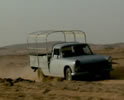 Last year had a couple of surprises for us, although most of these have yet to be completely realized: we found a new house, but we have yet to move there; we began planning our trip to Togo (and Ghana) for the upcoming July; and the Democrats won back the U.S. Congress.
Last year had a couple of surprises for us, although most of these have yet to be completely realized: we found a new house, but we have yet to move there; we began planning our trip to Togo (and Ghana) for the upcoming July; and the Democrats won back the U.S. Congress.
One of the biggest changes in our lives in 2006 was Agbessi’s move to Durham. He stayed with us during the summer and then moved to an apartment in Durham. It’s great to have him here; he is like a family member to us. Hopefully we’ll all be able to travel back to our village in Togo together this summer. It’ll be really cool to show up back in Yikpa, the village where Laura and I met 15 years ago, with our children AND with one of the Yikpato from America!
 In July 2007, Laura will lead a group of customers an volunteers from her Fair Trade store in Durham on a tour of Ghana, visiting some of the artisans and coops that offer their wares at One World Market. We are planning to leave a week earlier and visit our village in Togo first. This is a big deal to us – taking our children back to the village where we met. And if Agbessi can come with us that’ll e even cooler because he knows our life in the U.S. and his presence will strengthen the bond between our families even more.
In July 2007, Laura will lead a group of customers an volunteers from her Fair Trade store in Durham on a tour of Ghana, visiting some of the artisans and coops that offer their wares at One World Market. We are planning to leave a week earlier and visit our village in Togo first. This is a big deal to us – taking our children back to the village where we met. And if Agbessi can come with us that’ll e even cooler because he knows our life in the U.S. and his presence will strengthen the bond between our families even more.
In August, Laura found a little house for us, a bit closer to Durham, and a very pretty 2-acre property. We signed a contract but the inspection turned up some serious structural problems. The seller agreed to have the problems fixed. Now, three months later, the contractors have left, and a water test turned up problems with the well that supplies the house with water. Currently we’re in the process of determining what needs to be done to treat the water. Probably a filter and a UV light will be alright. It’s really too bad that this is such an obstacle course. Yet, we have looked around, and we have not found another house for sale that would change our mind.
For Laura’s store, 2006 was a great year. They sold over $430,000 in Fair Trade merchandise, which supports communities all over the world. About a quarter of that was sold between Thanksgiving and X-mas! During most of the year, selling $1000 worth in merchandise is a good day’s work at the store. During the peak of the Christmas shopping frenzy, the mostly volunteer-staffed store was selling at a rate of about $1000 an hour! And as they don’t have much storage space, they were almost continuously unpacking merchandise and stocking the sales floor. And Laura was continuously ordering more stuff. Still, when I saw the store last week, I was amazed to see how depleted it looked! But they set new sales records for the store, both for holiday sales, and for the entire year. Congratulations!
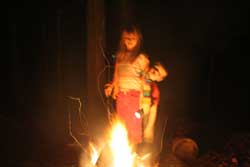 The biggest change for Jacob and Julia last year, I think, was discovering the Horse Ranch where they spend a couple of hours every day after school. While Julia got really serious about learning how to ride – and to ride well – Jacob seems to mostly enjoy playing with his buddies around the Ranch. Julia has won several shows at the Ranch, and she can canter a horse across 3-foot (one-meter-high) obstacles! Jacob has learned how to ride a horse, too, but he is still a bit young for the more advanced stuff.
The biggest change for Jacob and Julia last year, I think, was discovering the Horse Ranch where they spend a couple of hours every day after school. While Julia got really serious about learning how to ride – and to ride well – Jacob seems to mostly enjoy playing with his buddies around the Ranch. Julia has won several shows at the Ranch, and she can canter a horse across 3-foot (one-meter-high) obstacles! Jacob has learned how to ride a horse, too, but he is still a bit young for the more advanced stuff.
On my end, my job at Duke changed quite a bit. In addition to all the network stuff and computer security business, I also got to re-design an office suite at Brightleaf Square. I moved my office and the server room, and my co-worker’s office into a new, self-contained office suite. The latter, we just completed in December. So, we’ll see how that shakes out …
A nice perk of my job was being able to sneak out and watch football games last summer, during the Worldcup. As I work with several “dang for’ners” from football nations (England, Germany, Turkey, Togo, Haiti) we had a pretty good contingent over at Satisfaction for some of the games. And the folks at Satisfaction even opened the bar early (at 9:00 AM) several times so we could catch some of the early games (like the Togo games).
 The Worldcup was great fun: from the ecstasy of Germany’s win over Argentina to the agony of Togo’s first Worldcup appearance. We saw some wonderful football, especially in the first round, even though real upsets were rare and in the end the Worldcup was dominated by “millionaire football” and somewhat tainted by some really questionable officiating, most painfully noticeable in the Ghana-Brazil game and Australia’s 95th-Minute loss to Italy. And then, of course, there was this unfortunate incident during the very unfortunate Worldcup final.
The Worldcup was great fun: from the ecstasy of Germany’s win over Argentina to the agony of Togo’s first Worldcup appearance. We saw some wonderful football, especially in the first round, even though real upsets were rare and in the end the Worldcup was dominated by “millionaire football” and somewhat tainted by some really questionable officiating, most painfully noticeable in the Ghana-Brazil game and Australia’s 95th-Minute loss to Italy. And then, of course, there was this unfortunate incident during the very unfortunate Worldcup final.
In the fall of 2006, I started another chapter in my biofuels quest: I completed my biodiesel reactor and began producing biodiesel in the basement. I collect the used fryer oil from several restaurants around Brightleaf Square and process the vegetable oil at home into fuel for my 2002 Jetta TDI. Although this is quite a bit of work, it is very satisfying to reduce my reliance on fossil fuels, produce much less harmful exhaust and safe some money doing it. And it is also a fun, relaxing hobby. As I am typing this, my 200-liter “New Year’s batch” is sitting in the washtank downstairs.
Finally, politics. I mean, I am pretty excited about the fact that the Republican’s lost the congress to the Democrats. Almost more importantly, though, are the implications of this loss to the power of the so-called neocons in the Republican party. Right now, it looks like that in 2008, the “New American Century” will come to an end. Finally. I just really hope that the Democrats manage to re-assert congressional oversight and reintroduce accountability into this corrupt, incompetent administration. And get the US troops out of Iraq ASAP!
I’d say 2006 was pretty good to us. We don’t take this for granted, as we see around us people who had a difficult time, and we certainly are quite aware of all the pain and suffering in the world. Yet, we also see all the hope and generosity around us and we try to contribute to the positive things that go on around us. I am painfully aware of the many serious problems and challenges ahead of us and future generations. But I also see all the energy and hope and strength growing in our children, I can’t help but feel optimistic about the future.
So, thanks to you all for your interest in my blog. I hope 2007 brings you good news and exciting things to do. Feel free to comment and share with us what is going on with you.
Cheers, and a Happy, Prosperous, Healthy 2007!
Jürgen
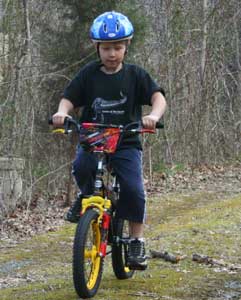 After a few chilly days, temperatures were back to the 60s F (almost 20 °C) today, and so we went out to the Little River Park. Laura went for a run and when she got back I rode the bike trail. Jacob and Julia rode their bikes and played in the playground.
After a few chilly days, temperatures were back to the 60s F (almost 20 °C) today, and so we went out to the Little River Park. Laura went for a run and when she got back I rode the bike trail. Jacob and Julia rode their bikes and played in the playground.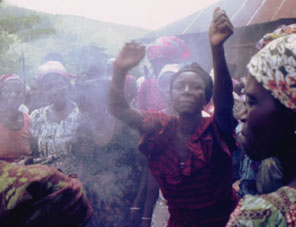 Yikpa-Anigbe in 1991. As the drums were rumbling in the background, and the men occasionally fire an old rifle into the air, the women gathered to burn herbs and say prayers for the deceased. Finally Mama Celi, the chief of the women, put some herbs on the fire, and as the pungent, aromatic smoke filled the air, she slowly dances to the drums and recites with great intensity a powerful prayer for the old man.
Yikpa-Anigbe in 1991. As the drums were rumbling in the background, and the men occasionally fire an old rifle into the air, the women gathered to burn herbs and say prayers for the deceased. Finally Mama Celi, the chief of the women, put some herbs on the fire, and as the pungent, aromatic smoke filled the air, she slowly dances to the drums and recites with great intensity a powerful prayer for the old man.
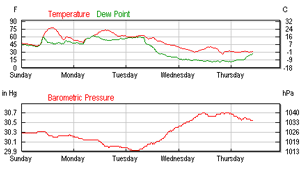
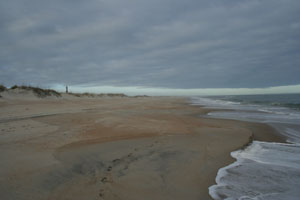



 For all you non-parents: Elmo is a red Sesame-Street “monster” that talks about himself in the third person. Toys based on this character have been extremely successful over the last 10 years. In 1996, a Wal-Mart clerk “suffered a pulled hamstring, injuries to his back, jaw and knee, a broken rib and a concussion” after he was trampled by 300 crazed shoppers because he held one of the remaining Elmo toys in the store (
For all you non-parents: Elmo is a red Sesame-Street “monster” that talks about himself in the third person. Toys based on this character have been extremely successful over the last 10 years. In 1996, a Wal-Mart clerk “suffered a pulled hamstring, injuries to his back, jaw and knee, a broken rib and a concussion” after he was trampled by 300 crazed shoppers because he held one of the remaining Elmo toys in the store (
